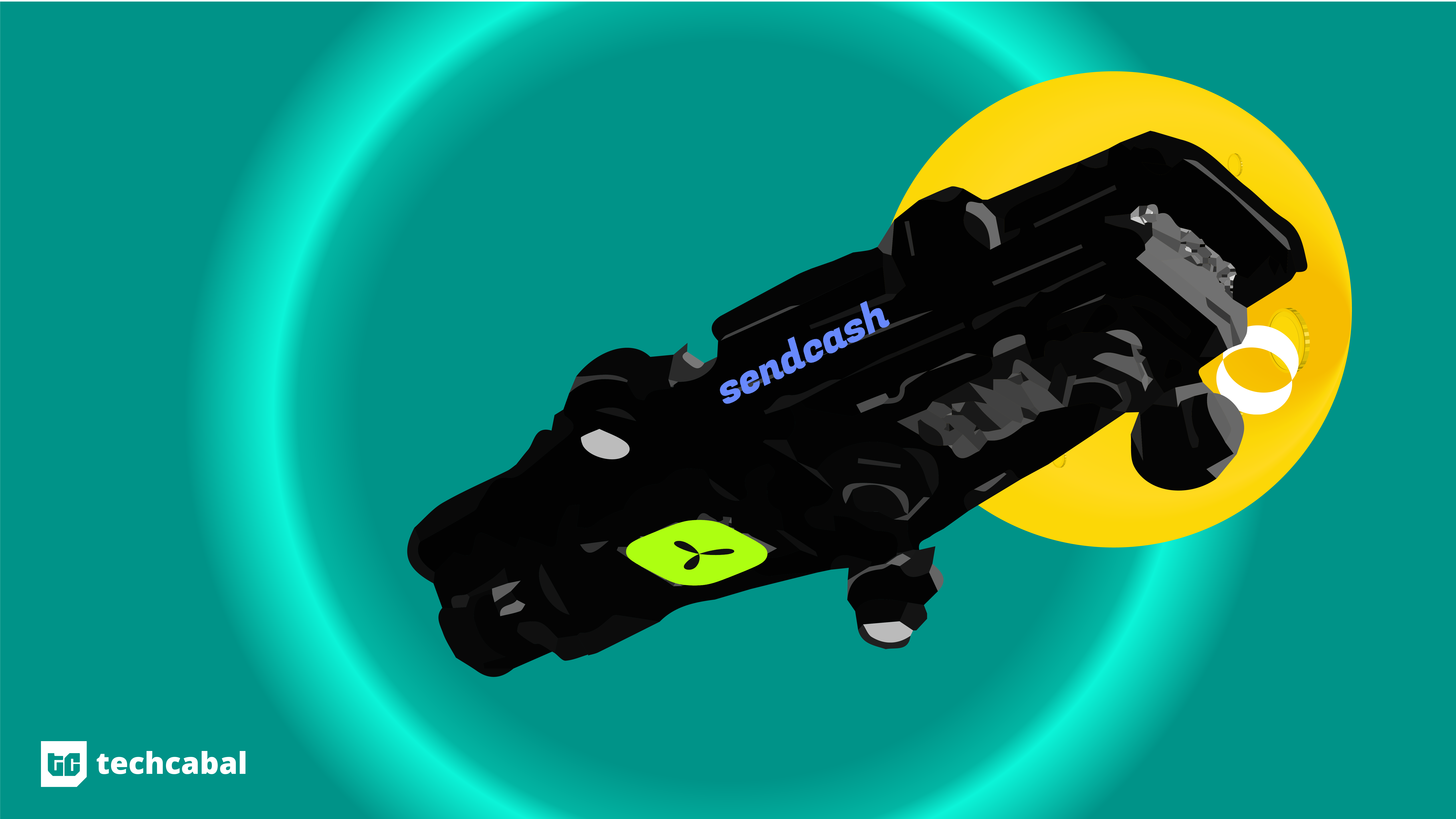Buycoins is celebrating its history and the milestone of transitioning to Helicarrier, its new parent company, and is holding an event titled “State of The Union” on October 30 to mark it. While the discussions at the event would have far-reaching consequences on the state of cryptocurrency in the country, the event is exclusive and invite-only.
But before Buycoins, the company was called Bitkoin—a website for peer-to-peer (P2P) Bitcoin trading.
Buycoins was founded in 2017 by Timi Ajiboye, Ire Aderinokun and Tomiwa Lasebikan to afford Nigerians a safe and easy way to buy, sell and store cryptocurrencies. After being called Buycoins for the past three years, the exchange and all the products created by its team will now be housed under the new parent company, Helicarrier.
The Buycoins team expressed that it made the change because its former name didn’t do a good job of capturing all they do and have become. Similar to the name of the fictitious versatile super-machines that are capable of sustained flight via four massive turbine engines, Helicarrier currently houses over five which will power its efforts to disrupt remittance payment in Nigeria and, by extension, Africa.
Helicarrier’s five products are Buycoins, a platform for buying, selling and storing cryptocurrencies; Buycoins Pro, a platform for advanced crypto traders, featuring an order book, many more currency pairs and other tools for super-fast trading on the go; Sendcash, a platform for crypto-powered remittance; Sendcash Pay, a suite of developer tools that let you add borderless payment experiences to your digital products; and NGNT (Nigerian Naira Token), a naira-backed digital currency.
All the products will retain their names and normal operations, the Buycoins team explained.
To further understand Buycoins’ work over the past three years, the challenging, fulfilling and exciting parts, and the rationale behind the change to a new name, I spoke with Tomiwa Lasebikan, co-founder and Chief Product Officer; Teju Adeyinka, Head of Growth, Sendcash; and Zino Asamaige, Head of Growth, Buycoins Pro.
Sultan Quadri: What inspired you to build Buycoins, and what problems were you trying to solve with this product?
Tomiwa Lasebikan: So, I guess it was the challenge of getting started with crypto in Nigeria. There were times Timi and Ire would want to buy something from the US and want to send me Bitcoin as a means of payment for that. But being able to get Bitcoin in Nigeria was a pain. Back then, we had something called “local Bitcoins”, but it was fraud-prone and the user experience was really bad. We all had conversations and thought, “Oh, how difficult would it be to build a crypto exchange?” It was supposed to be a little project that enabled people to trade Bitcoin without stress. So, that was the start of the journey.
SQ: What challenges did you encounter during the building process?
TL: There have been a lot of things. One has been the challenge of hiring, especially because we are building something in a very new and rapidly-evolving space. So, we need people with the ability to keep up with the fast pace of the industry. That can be very challenging.
We’ve also had issues with educating our users about cryptocurrency and the crypto space to protect them from scams. To get people on board, we’ve had to change the dominant narrative that crypto was for geeky computer scientists and whatnot. Making people think of crypto as something they can use for moving money across borders or hedging against inflation has been an important aspect of our (re)orientation campaign.
Another challenge we faced was interfacing with regulatory systems—although that’s a global problem: big exchanges like Coinbase face regulatory challenges too.
SQ: What are the challenges of building new products?
Teju Adeyinka: Getting people who are willing to even try out the products is challenging. For instance, with Sendcash, people who have never used Bitcoin before might feel intimidated to try it out because of the interface. So, we had to figure out a way to craft our messages and build experiences that make sense for people who don’t care about all the technicalities of using crypto.
We also had to deal with platforms’ regulations. For instance, MailChimp reached out to say we can’t use them anymore because we are a crypto exchange company and they don’t support crypto exchange companies at the moment.
We constantly have to find alternatives for a lot of different things because people and platforms do not want to work with a crypto exchange company.
Zino Asamaige: When we launched, a bulk of the work had to do with educating customers. There were so many questions we didn’t have answers to, but we couldn’t just send them away. So, we learned more about the space or used Google when asked questions, all to ensure that our customers are satisfied.
SQ: What were some of the most rewarding aspects of the building process and your earliest memorable milestone?
TL: Back in November 2018, when we got our first dozen high-volume users, it was nice to see. Subsequently, there was a spike in trading volume and we knew we were building something useful. There were times we got comments like, “Sendcash is the best way for me to send money back home to my mum.” During the lockdown, not everyone could stand in queues at Western Union, so using Sendcash to send money was easier. Providing a service that changes dollars or crypto to naira in a few minutes is satisfying.
TL: Another early milestone was when we hit a million dollars in volume of transactions processed in a month, in the fall of 2018, just after YC Demo Day. Before Buycoins—the app with a standard exchange interface, we had Bitkoin Africa, a website for P2P crypto trading, So, when in one day, we did more volume at Buycoins than in all of Bitkoin Africa’s history, we were elated.
Also, in December last year, the last month we had publicly shared, we added $20 million in monthly volume.
ZA: We created a crypto course at Buycoins in 2019, and it has been one of the best things I’ve ever done in my life. It was an introduction to Bitcoin for beginners. We spent a lot of time simplifying the language, making it easy for anyone to read and understand. Right now, we have over 3,000 people taking the course, and the feedback we get from people is particularly about the course is easy to understand.
SQ: What influenced the change of name to Helicarrier?
TL: Being able to define what we do is critical for us because a lot of times, with crypto, it’s not very obvious the full range of things that people can do to be able to solve their problems. And so, it became increasingly clear to us that we were in danger of people narrowly defining what it is that we did. Some just think of us as a crypto exchange or platform for sending cash. It was something we wanted to fix. One day, it became clear to us that we’re the sum of this box and more. So, we had to turn all of these things into a consistent story and define the set of tools that we think of as the infrastructure for growing crypto adoption on the continent.
So, fundamentally, we think of ourselves as sort of building out the infrastructure for the rapid adoption of crypto. Each of the things that we build as a part of Helicarrier serves a purpose, but we have to ensure that is clear.
So, there are four major things we do: the crypto exchange, Sendcash, Sendcash Pay, and the OTC desk, which is a way for businesses to effectively move money across borders. There’s also one more exciting thing, still in the pipeline.
SQ: How have you gone about communicating the changes that have occurred in the business this year?
ZA: Our users know that nothing has changed. From the point of view of using our products, they haven’t had to do anything extra. All these products were not added in just one day; we gradually built them with the users. So, when we develop anything, the first thing we do is talk to customers about it.
SQ: How are you making Buycoins safer for users?
TL: Security is important to us because we are managing people’s assets. There are many risk factors we always have to address, but one big thing is recognising that the problems we face are global challenges. So, what we do is, lean into the expertise of big exchanges like Binance, learn from their experience battling these problems and just replicate solutions where necessary.
One good example is asset custody, where we don’t worry about building the infrastructure ourselves because there are crypto custody companies that have already solved this problem. We also ensure we take our own security measures: everyone who uses our platform is verified.
SQ: What is the hardest part of your role in customer service?
ZA: The hardest part has been hiring. One thing that Helicarrier takes very seriously is customer service. We try to make sure that anybody that works with us is as obsessed with it as we are. A large part of customer support work is telling customers that their money is not missing. Customers that have their money on any app open the app every second to check. If they notice any unusual changes, they’ll hit you up with “Where’s my money?”
SQ: How were you able to manage customers during CBN’s crackdown on crypto exchanges?
TL: It’s been one of the obvious challenging points in the company’s lifecycle. We had to understand regulatory communication and ensure that we framed that effectively for our users and explained their implications to them. We let them know that their assets were completely safe.
The next thing was to figure out the shortest time for us to get back on our mission and ensure that users could do the things they want to do and extract the value they had always been able to extract from us.
Behind the scenes, we were able to process how we arrived at the problem in the first place, which involved figuring out which regulators or stakeholders to talk to, helping them understand the importance of crypto, and letting them know we are good-faith actors and that there wasn’t anything fishy going on in the space. We let them know that we have the same goal, which is to empower Nigerians.
SQ: How would you describe the Buycoins users?
ZA: That would be somebody who doesn’t want stress but wants to make cryptocurrency transactions. Or somebody who wants to be able to send money to Nigeria easily. Or somebody who wants to use cryptocurrencies to join a world of possibilities.
TA: A Buycoins user is a global African, living on the continent or elsewhere, trying to connect to the world financially. A Helicarrier customer would be an African or a business that is traditionally shut out of the financial system but wants to access the global finance infrastructure easily.




















